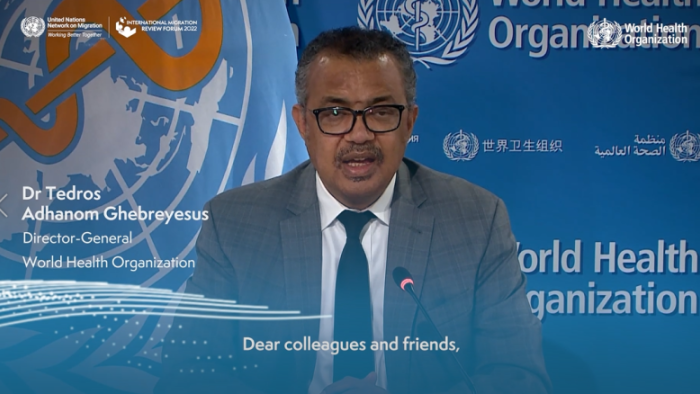Pledging initiative
What is a pledge?
A pledge is a measurable (by some specific metric) commitment to advance the implementation of one or more GCM guiding principles, objectives, or actions. It can take various forms, including:
- Financial contributions (e.g. contribution to the Migration MPTF);
- Human resource contributions (e.g. provision of technical assistance or pro bono services);
- Process-oriented commitments (e.g. involving stakeholders in inclusive IMRF preparations);
- Policy-oriented commitments (e.g. integrating GCM policies or actions into national law or administrative procedures).
Pledges should be concrete and measurable, respond to existing needs and could include actions at local, national, regional, or international levels. They should be realistic, forward-looking, time bound and preferably developed and implemented in partnership with other stakeholders. Pledges should be made in accordance with principles of international law and be consistent with agreed frameworks, in particular the 2030 Agenda. Where possible, pledges should address objectives that were underreported during the GCM regional reviews.
What types of pledge exist?
Pledges can be made in various ways:
- Individual (by one member state/ stakeholder);
- Common (several member states/ stakeholders making identical or complementary pledges);
- In partnership (several states/actors contribute towards a shared goal with different actions/pledges); or
- Matching (a pledge is realized when others match it in some way by way of committing to provide financial, technical, or material support).
As the GCM is a cooperative framework, joint pledges, undertaken as a means of building partnerships, are encouraged.
Who can pledge?
- UN Member and Observer States;
- UN system entities;
- Relevant stakeholders, including financial institutions, private sector entities, local and regional authorities, international organizations, humanitarian and development actors, trade unions, academics and civil society and diaspora organizations.
Localize your pledges
Pledging Snapshot
UN system pledge
Endorsing UN entities for the UN system pledge
• International Labour Organization (ILO)
• International Organization for Migration (IOM)
• Office of the High Commissioner for Human Rights (OHCHR)
• United Nations Department of Economic and Social Affairs (UNDESA)
• United Nations Children’s Fund (UNICEF)
• United Nations Development Programme (UNDP)
• United Nations High Commissioner for Refugees (UNHCR)
• United Nations Office on Drugs and Crime (UNODC)
• World Health Organization (WHO)
• UN-Habitat
• Development Coordination Office (DCO)
• United Nations University (UNU)
• Food and Agriculture Organization (FAO)
• International Fund for Agricultural Development (IFAD)
• UN Office for the Coordination of Humanitarian Affairs (OCHA)
• United Nations Entity for Gender Equality and the Empowerment of Women (UN Women)
• UN World Food Programme
Statements from our Principals











FAQ
Why a pledging initiative?
A pledging initiative can help build momentum for the review of the implementation of the GCM and assist all actors in contributing to its implementation in tangible ways.
A pledging initiative by States and stakeholders can:
- Make a tangible difference to the lives of migrants and their communities;
- Demonstrate the value of international cooperation in addressing challenges that can arise in migration governance and in harnessing the contribution of migration to sustainable development;
- Encourage peer-to-peer learning;
- Identify shared priorities and build innovative partnerships;
- Broaden support for the GCM, strengthen positive, evidence-based narratives and combat discrimination.
Pledges and the Report of the UN Secretary General
In his Report on the Compact for Safe, Orderly and Regular Migration (GCM), the UN Secretary General encourages States and stakeholders to pledge concrete actions for the implementation of the Compact, where possible, in advance of the first International Migration Review Forum and beyond.
The Report identifies gaps in the implementation of the GCM and contains recommendations on:
- Promoting inclusive societies and including migrants in COVID-19 response and recovery;
- Promoting safe and regular migration;
- Preventing loss of life and other tragedies during migration;
- Building capacity.
As such, the Report provides useful guidance to Member States and Stakeholders when formulating pledges.
When was it launched?
The launch of the pledging campaign took place on 17 December 2021, a day before International Migrants Day and two days prior to the third anniversary of the adoption of the GCM.
Pledging approaches
Key criteria should focus on measurable implementation of a certain aspect of the GCM and ensuring a balanced outcome in line with the GCM's 360-degree approach and the guiding principles. Pledges should encourage endeavours and cooperation between partners.



